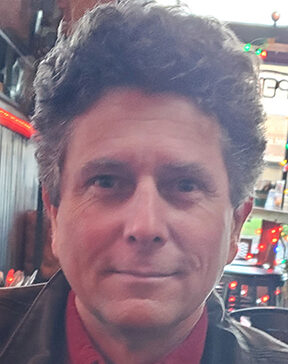When I moved to the Bay Area, I lived in my ’66 split-window VW van plastered with Grateful Dead stickers. Back then, we called people living in their cars “rubber tramps,” which was considered a higher caliber of homeless person. When the engine threw a rod, I lived in the shell of the van where it died in downtown Santa Cruz, selling off engine parts and the drivetrain to raise money for another vehicle, until the rest of my beloved van was towed away. I sorely missed having that VW bus for all the security and mobility it provided. Much of my stuff was subsequently stolen from a motel on University Avenue in Berkeley. Fortunately, I found work and my family helped stake me in my first apartment. Back then, $300 per month got you a room in a flat with 2 roommates in San Francisco. Fast forward thirty years, and I contemplated living in my RV in Berkeley when I applied for graduate studies at UC. I couldn’t imagine how I would otherwise afford to live here. As fate would have it, I got married instead, and my wife owns the house where we stay in North Berkeley while I pursue my master’s degree.
High rents and limited choices for housing in the Bay Area have left some people with RVs as their best shelter option. In Berkeley, this has led to many people parking overnight wherever they can get away with it. After being chased out of the Berkeley Marina, they flocked to the Gilman District of North Berkeley, where they again came under pressure from their property-owning neighbors. These privileged citizens produce a litany of concerns to justify their removal—city statutes, fire risk, inadequate sewage disposal, petty crime, drug use, and just plain unsightliness. The RV dwellers are an onus on the tax-paying, respectable people of Berkeley, and we can’t even be sure that they are really “from here,” or so the argument goes. It would be much better for everyone, they solemnly conclude, if “those” people would just go away. When the Berkeley City Council voted to ban RV parking it created an uproar among the RV dwellers, but it was the backlash from neighboring Oakland, with concerns that the undesirables would simply move there, that garnered the most attention. Since then, Berkeley has continued to pursue solutions including a temporary reprieve for some RV dwellers, change of state rules at the Marina, overnight use of city parking lots, or development of a Caltrans property in Albany. One distraught councilwoman called on large tech companies, who she identified as responsible for driving up rents, to contribute money towards a solution. Something tells me that money will not soon be forthcoming.
In this country, we hold the poor responsible for their plight. Even in progressive Berkeley, people who have attained a standard of living that provides them with shelter and calories and an education for their children resent the idea that a person of lesser means would inhabit spaces adjacent to them. Except for the little bit of money in my pocket and the support of my community, I am not much different from these rubber tramps, who themselves are one unlucky break away from real personal catastrophe. The state has been slow in responding to a request to relax rules at the Marina even as the governor has issued an executive order to pursue “less traditional methods” for shelter on public land. This is more than a Berkeley problem; it’s a California problem and an America problem. We should prioritize the use of state resources in Berkeley and Albany to provide safe space for these vulnerable people to help them build better lives.
